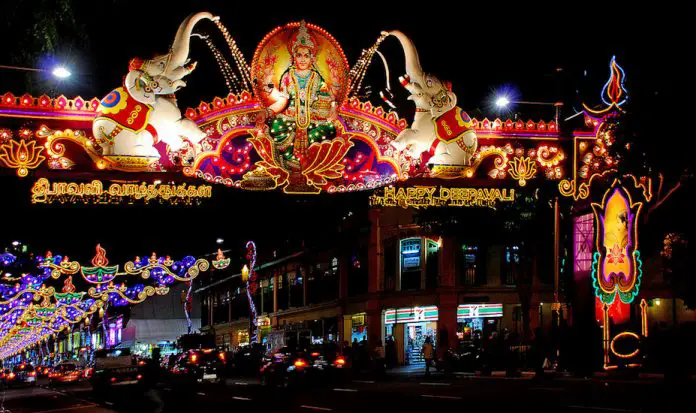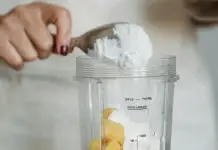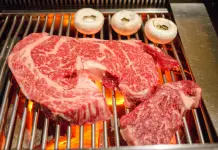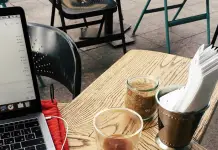Happy Deepavali! You might already know that Deepavali, or Diwali, is also known as the Festival of Lights. Hindus celebrate Deepavali to symbolise the spiritual “victory of light over darkness, good over evil, and knowledge over ignorance” as well. In Malaysia, we get a day off for Deepavali. However, did you know that traditional Deepavali celebrations are spread out over a total of 5 days? Let’s find out how each day is celebrated!
Day 1: Dhanteras
For most, Dhanteras is a day of spring cleaning and shopping. On this day, Hindus clean their homes and business premises. Besides that, they also start installing diyas, which are small earthen lamps to be lit continually for the next 5 days. They also decorate their doorways with rangoli, or kolam as more commonly known in Malaysia. After that, it’s time to shop! Celebrants will then buy essentials such as utensils and house equipment, as well as jewellery and fireworks to usher in the spirit of Deepavali. In the evening, families typically offer puja (prayers) deities Lakshmi and Ganesha, offer puffed rice, candy toys, rice cakes, and batashas (hollow sugar cakes). Basically, the first day is a symbol of annual renewal, cleansing and an auspicious start for the next year.

Day 2: Choti Diwali, Naraka Chaturdasi
“Naraka” actually translates as hell, and day 2 is a day for honouring the departed. On this day, rituals that are conducted are depicted as ways to liberate souls from suffering, as well as a reminder of spiritual auspiciousness. Some also pray for peace of their ancestors’ souls, and to light their way for their journey in the afterlife. However, it’s not all spiritual; it’s also a day to get festive with food preparations! Families cook up a storm and prepare sweets in particular, and they also visit friends and family, business associates, and exchange gifts on this day.

Day 3: Diwali
This is the main event that we know – Diwali/Deepavali! Since this day coincides with the darkest night of the Hindu Lunisolar month, it only makes sense to light everything up! Hindus will light up temples, homes, offices, shops and other buildings brightly, bathing everything in a glow, hence the Festival of Lights. On this day, people visit each other a lot, and may exchange gifts. Even shops will not open, or close early to give way for family time. As a major celebration, everyone dresses up in their best, and perform puja, both at home and at business premises. At the ceremony, devotees light up lamps. Then, those lamps will be used to light up other lamps in the house. After that, they will go outside and light up fireworks and firecrackers to ward off evil spirits, followed by a feast!

Day 4: Annakut
Day 4 has a list of different names, and has several backstories and interpretations. Among them, common interpretations are about celebrating husband-and-wife bond, as well as agricultural abundance. On this day, the husband will give gifts to his wife. In other communities, they build mini mountains out of cow dung in a ritual. As a common fertiliser, cow dung is actually an agricultural motif and is significant to annual crop cycles. Annakut also literally means “mountain of food”, and communities prepare over 100 dishes from different ingredients. These dishes are then dedicated to Krishna before shared out among the community of Hindu temples.

Day 5: Bhai Duj, Bhaiya Dooj
This literally means “brother’s day”, and it celebrates the brother-sister bond. Traditionally, the women of the family gather to perform puja to pray for the well-being of their brothers. After that, they return to perform a ritual of feeding their brothers with their hands, and receive gifts in return. In some communities, brothers travel to meet their sisters and their families. With the celebration of brother and sister, the Deepavali celebrations are then officially concluded!

Note: All information above is gathered from traditional celebrations in India, and may differ from local celebrations. If there’s anything you’d like to share with us regarding how Deepavali is celebrated in Malaysia/Singapore, let us know in the comments below!
https://www.facebook.com/tallypressmy/















